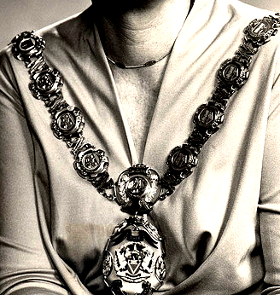Female councillors over-criticised and under-utilised
 With women woefully underrepresented in local government nationwide, several councillors have begun to speak out about what it means to be often the only female in regional chambers.
With women woefully underrepresented in local government nationwide, several councillors have begun to speak out about what it means to be often the only female in regional chambers.
Interruption, denigration based on appearance and unwillingness to accept that a woman is in power – these are all experiences that some elected officials face every day.
Statistics show that council-members nationwide are still overwhelming males over the age of 50.
In a recent interview with the Sydney Morning Herald, Camden Council Mayor and LNP member Lara Symkowiak said it was hard to break the mould.
She says that even in her second term as a councillor, she was still confused with the minute-taker at meetings.
“I guess people were more used to seeing the stereotypical older male in the role of mayor,” Ms Symkowiak said.
Alison McLaren was on the Blue Mountains City Council for eight years until she was forced to step down due to public attacks over her position on a controversial development.
“"I was being verbally attacked on public transport to the point that I didn't feel safe,” she said.
“I was being called a whore, a slut and a bitch. There is no equivalent for male councillors.”
Wendy Waller, a councillor and former mayor of Liverpool City Council, says bullying is alive an well in most council chambers, and is part of what keeps women from taking up roles.
Ms Waller also says that she felt like a “walking target” for constant criticism on the basis of her physical appearance and clothing.
“Men don't experience that kind of thing. Many people seem to have trouble accepting women in leadership roles,” she told the newspaper.
Melissa Brooks, a councillor elected last year, wrote a blog post recently which said she was heckled or interrupted in virtually every council meeting.
“It makes you dread council meetings,” she wrote.
Despite making up 51 per cent of the population, recent NSW stats showed women make up just 27 per cent of elected councillors, and a mere 19 per cent of mayors, which has dropped from 23 per cent in 2008.
Five councils had no female representatives at all.







 Print
Print